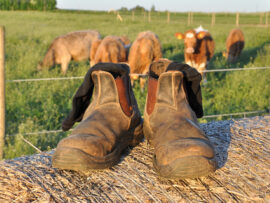In this week’s Torah portion, Vayelech, Moshe once again exhorts the Jewish People before he dies to adhere to the Torah’s commandments.
Moshe introduces the final two commandments of the Torah: each person should write his own Torah scroll, and the mitzvah of Hakhel. The Hakhel ceremony takes place every seven years, in the year following Shemitta, the agricultural sabbatical.
All Jews – men, women and children- would assemble in the Temple in Jerusalem where the King would read the book of Deuteronomy from the Torah scroll. The Jews would listen intently for the book expounds upon the rewards one receives for listening to the Creator and vice versa.
If the point of this ceremony was to get people to follow the Torah, why did it take place only once in seven years?
The Rabbis explain that there was a specific need after Shemitta to hold the Hakhel ceremony. It would not have the same effect had it been done more often. During Shemitta, Jewish farmers do not work on their fields. They spend the entire year removed from their mundane work engrossed in Torah study. They undoubtedly uplift themselves spiritually. Now, at the onset of the new year, they are returning to their fields and their normal course of life. G-d desires they should hold on to the high level of spirituality they attained the past year; therefore, the Torah was read aloud publicly to focus everyone’s attention on its teachings for the years ahead.
We are now in the midst of the High Holidays – Rosh Hashanah and Yom Kippur. Many of us are moved by the special prayers and the themes of the days, to take stock of our lives and to better ourselves in the year ahead. Once Yom Kippur is over, though, we tend to fall back into the complacency of everyday life, neglecting our moments of personal growth. All those positive feelings remain fleeting moments without a concrete plan of action to hold onto for the year ahead.
When one resolves to better himself in a specific area where he feels he can improve himself, he will be able to keep that spiritual moment alive throughout the year. For example, whoever wants to be more friendly to people and resolves to say “good morning” to a few passerby’s each day is in effect holding on to those moments the entire year every time he wishes someone a good day. This positive moment on the High Holidays is now transformed from a nice idea to something practical that will spur him to higher levels of personal growth the entire year.
In the merit of these moments of resolve, may we all be inscribed in the Book of Life for a happy and healthy new year.

